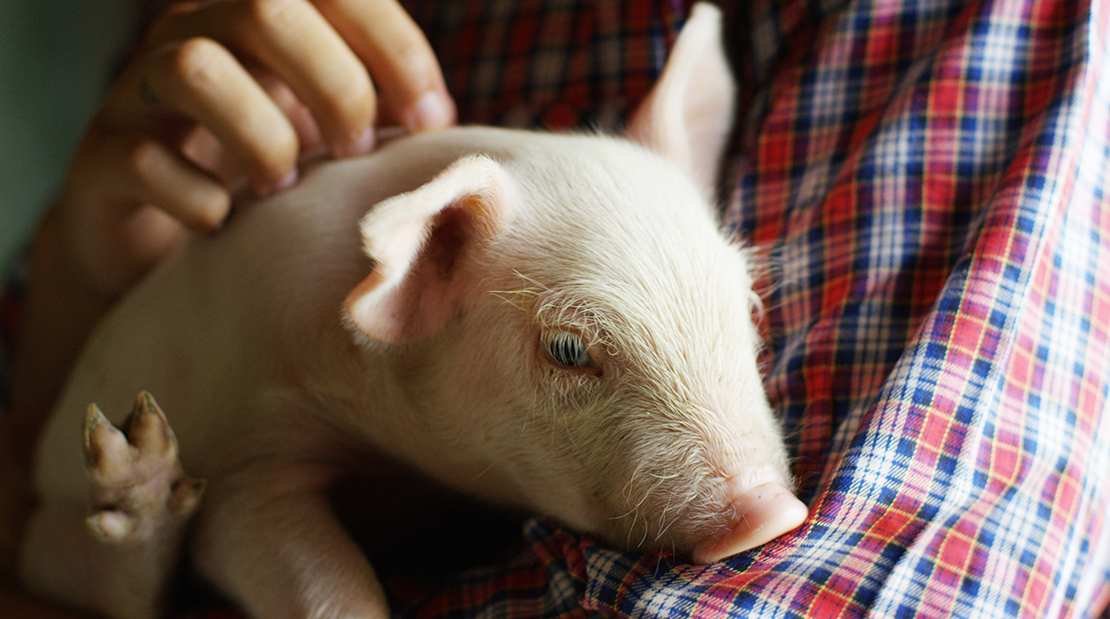
PIGS! Misconceptions, and Advantages to Ownership
“Your room looks like a pigsty.” Some parents have used that phrase—at some point—when describing their child’s room because pigs are sometimes seen as dirty animals who like mud and eat anything they see. Some humans may be turned away from the likelihood of owning one as a pet due to this reputation. However, in actuality, pigs are a common, clean, and easy pet to own and maintain. While our veterinary practice is in Texas and the population of pet pigs is plentiful due to land mass and zoning, we’re not the only location where pig ownership has become a phenomenon. There are several reasons their popularity has spread to many regions.
Some of the advantages of having pet pigs is their longevity, intelligence, and their easy maintenance. They are self-sufficient, obedient, easy to potty train, and have several similarities to dog, in the sense they are intuitive to people and very sympathetic. Their life span is also similar to cats and dogs.
Another great benefit is they eat a wide range of foods, so you do not have to worry much about diseases and monitoring their diets as close as you would other animals. For example, dogs should not eat grapes, but pigs can. They are a food-driven, food-motivated animal, so training involves repetition, and¬¬¬¬—you guessed it—food. If you motivate them to do tricks, plan to feed them as a reward. They are a fun animal because you can teach them to sit, lay, roll over, and spin in circles. I have even seen a pig do a jump and roll. It wasn’t quite a flip, but it was rather impressive.
Now, regarding their diet, I recommend pelleted pig feed as a primary food source. You can supplement with fruits and veggies and choose from a variety of items across the food spectrum, including oranges, apples, bananas, and even popcorn. But, I would suggest staying away from garlic and onions.
There are a few precautions of which owners should take heed.
Pigs have the propensity to be obese. So, be sure not to overfeed or give them too many carbs or high sugars. One of the major disadvantages to having a pet pig is arthritis which stems from obesity. Also, if they are not castrated, they may develop an odor. Failure to castrate could also bring about behavioral issues (usually in males).
One mistake pig owners make is not doing research ahead of time. If you don’t know the breed or bloodline of the pig beforehand, you may be in for a rude awakening. For example, you may be under the impression your pet will grow to be no more than 40 lbs., but they later exceed 120 lbs. You want to know what you’re getting, which is why getting a pig from a breeder or a reputable source might be beneficial.
There’s still more you’ll want to know if you’re in the market for a pig. But, until next time, I’ll leave you with words from one of my favorite pigs.
“That’s all folks.” -Porky Pig

